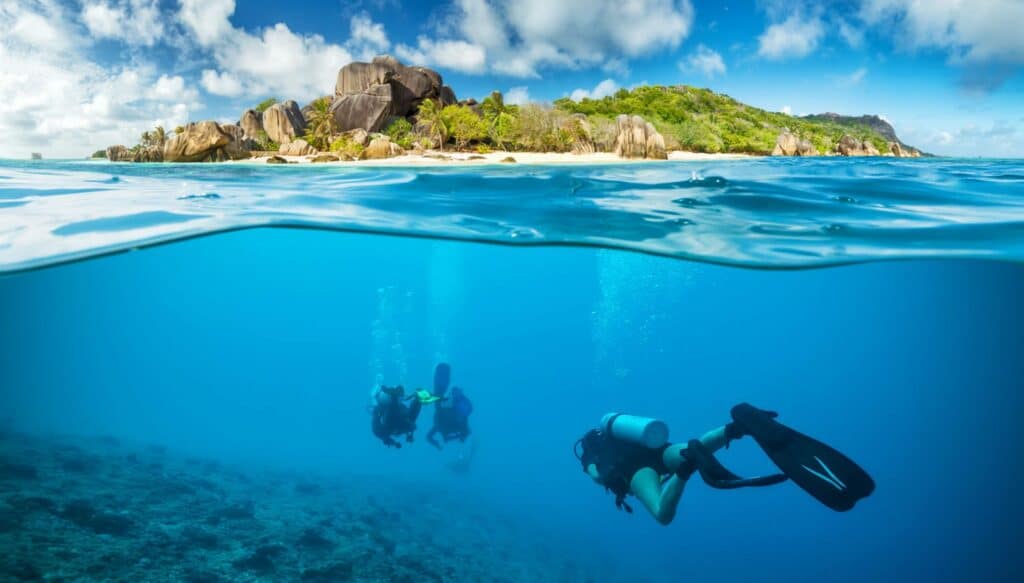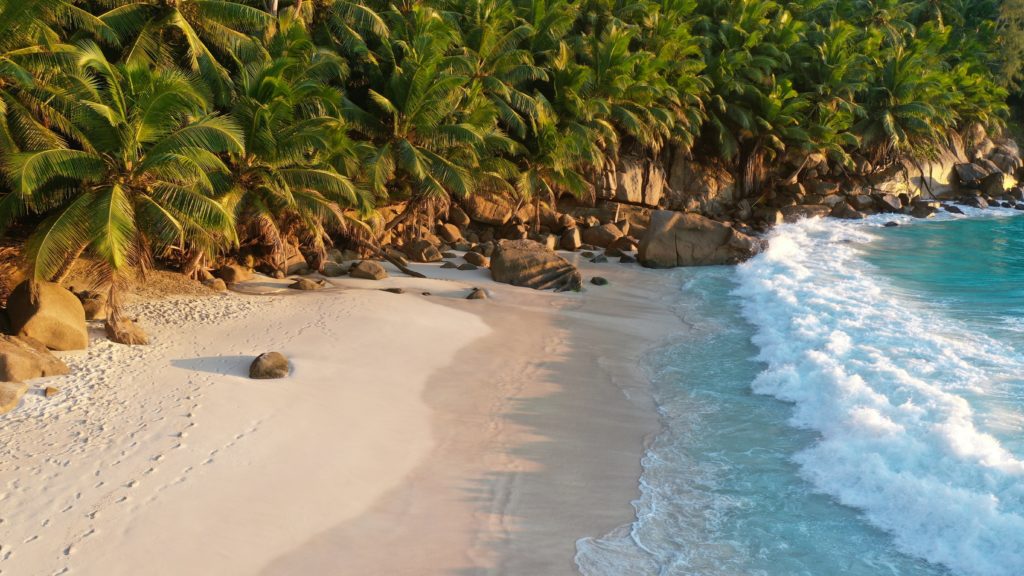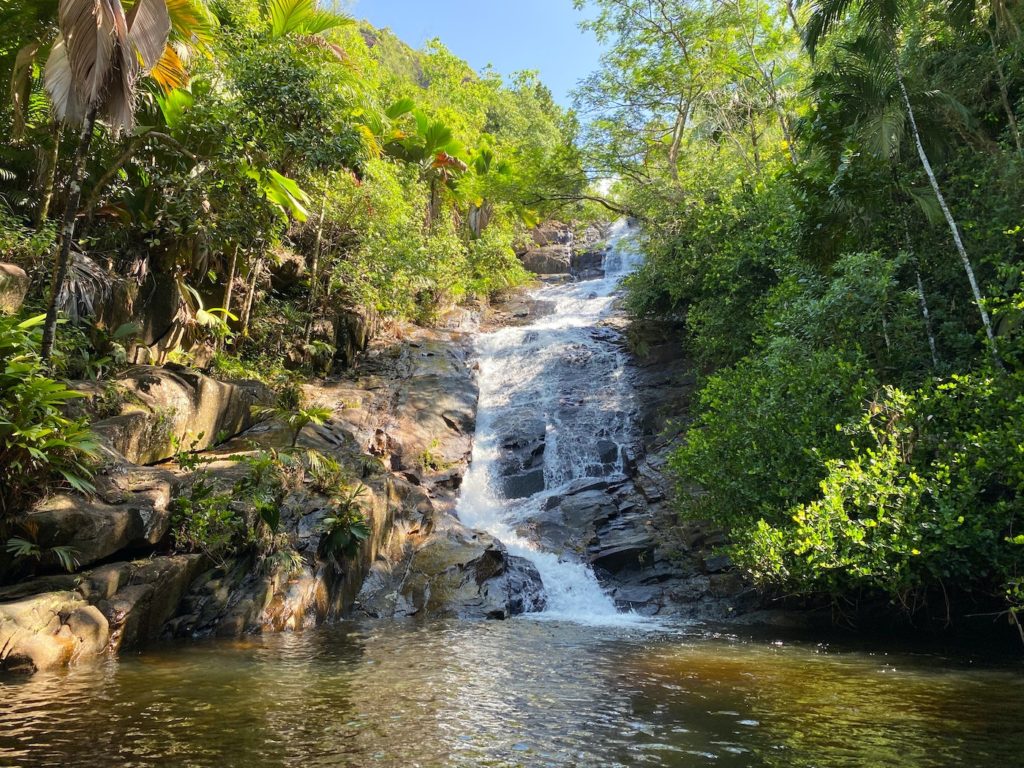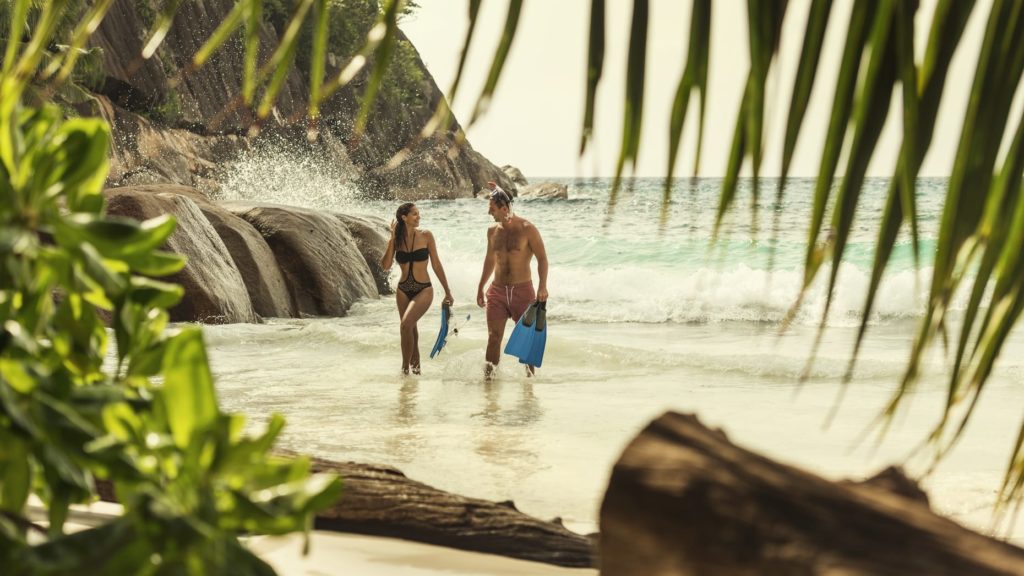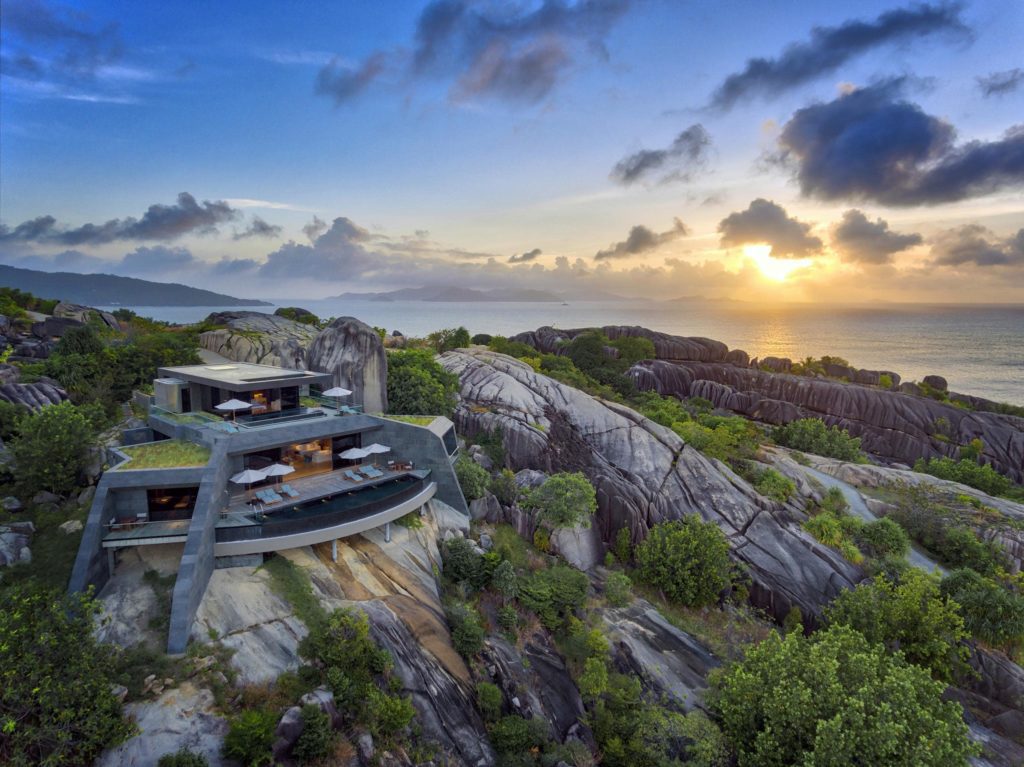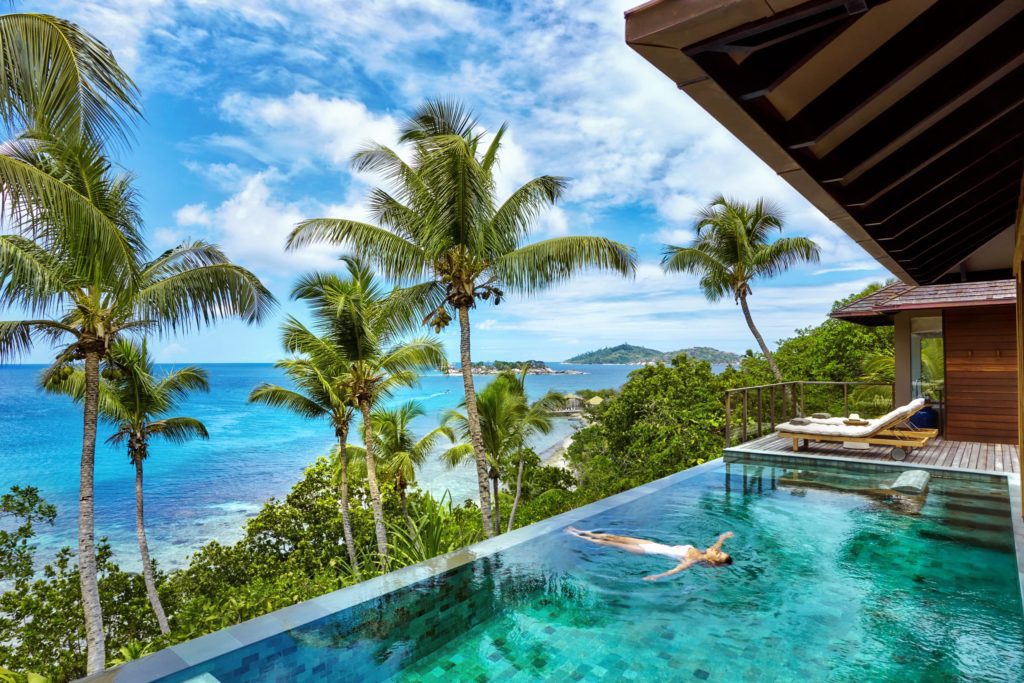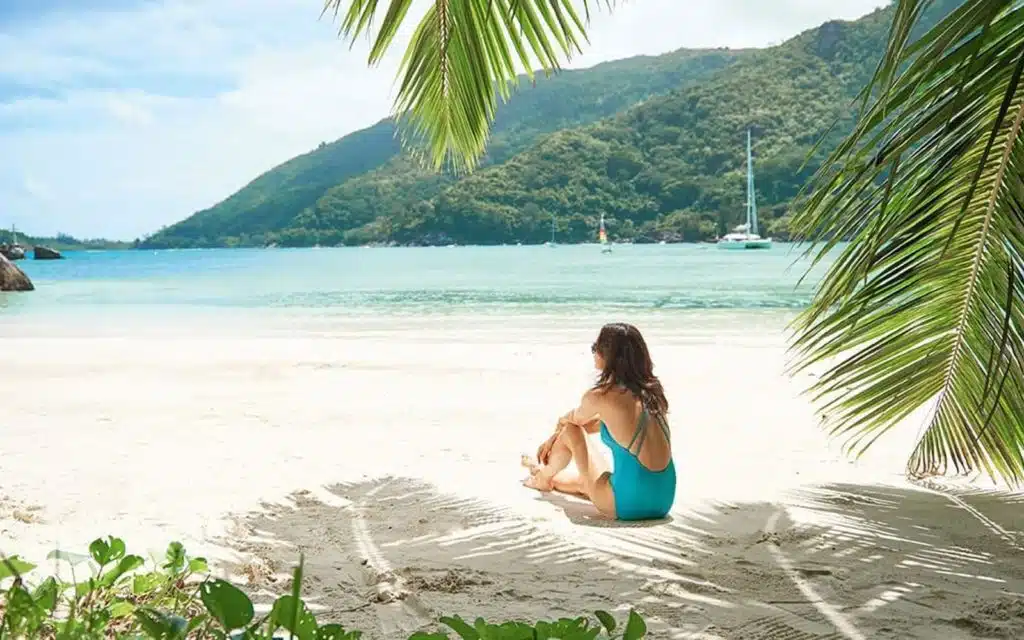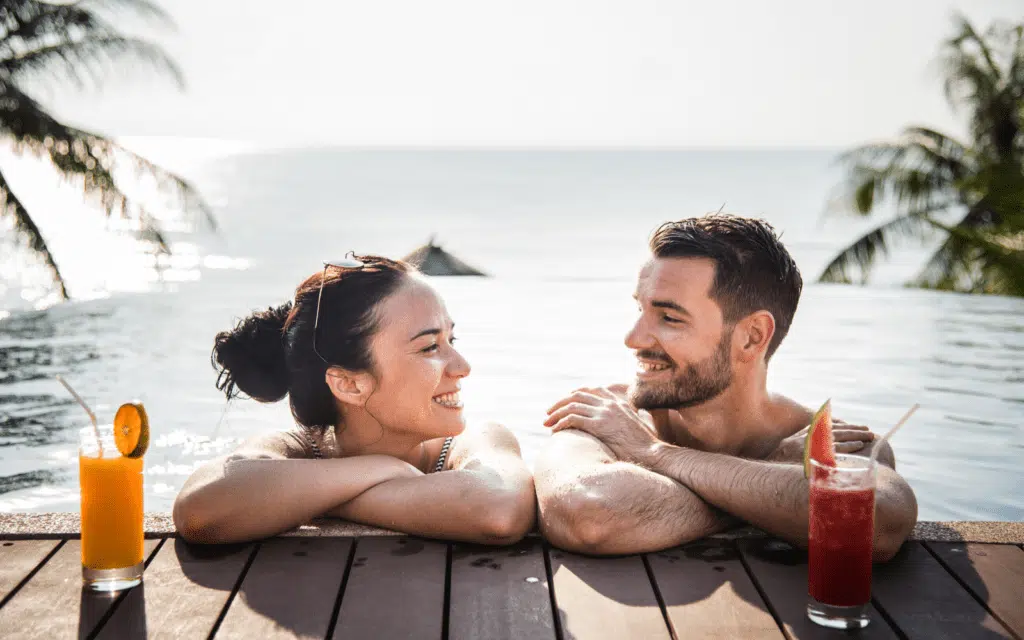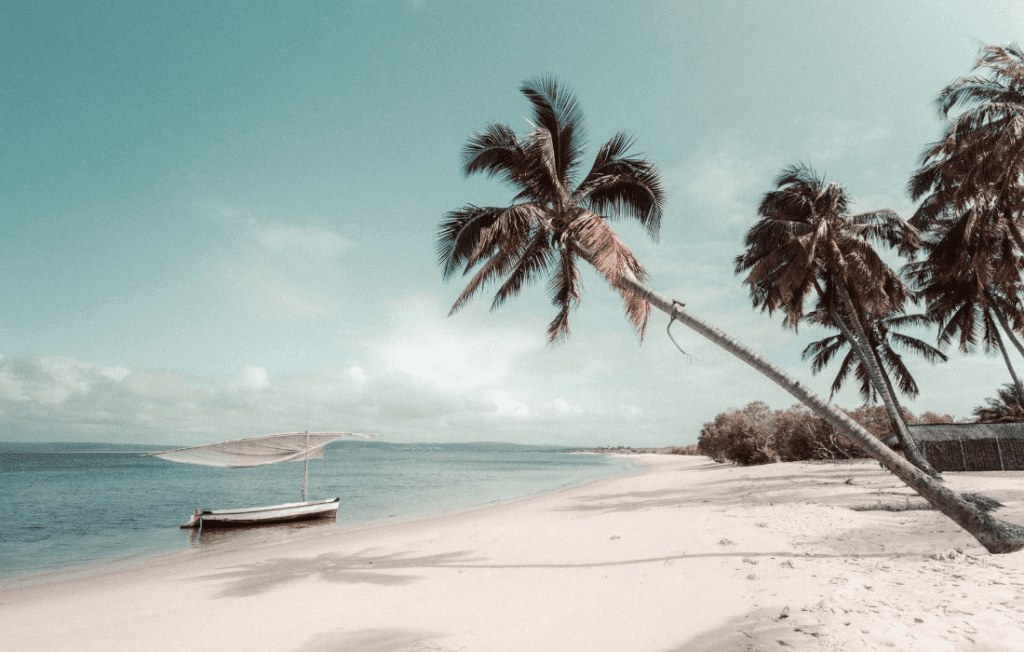HOW LONG SHOULD I SPEND IN SEYCHELLES?
Between four and seven days will keep you thoroughly entertained in Seychelles, allowing time for jungle excursions, island hopping and a healthy dose of rest and relaxation. One could happily spend longer letting island time peacefully drift by, but for those who thrive on a little more activity, an extended stay could prove a little challenging.
WHEN IS THE BEST TIME TO VISIT SEYCHELLES?
As with many equatorial countries, Seychelles suffers a significant monsoon season of heavy rains, high winds and almost debilitating humidity. The height of monsoon occurs from December to February each year and should most certainly be avoided. Temperatures are consistent year-round, but the rainfall can be extreme. Though tradewinds can be fairly strong, with so many beaches to choose from, you can invariably find a secluded cove. The three months of June to August are certainly the best and, while some light rains occur, are for the most part drier, less humid and far more amiable.
WHAT CAN I EXPECT FROM ACCOMMODATION IN SEYCHELLES?
Exquisite contemporary luxury, premium family resorts and classically colonial residences. The majority of accommodations are modern and well-appointed, with a full suite of facilities, pools, villas and even private beaches. While some will feel more akin to a resort-style communal property, others provide private, self-contained lodges and a greater sense of escapism.
OTHER DETAILS:
Travellers don’t require a visa for Seychelles. While inoculations are minimal, we recommend that you contact your travel designer or a travel medicine specialist for vaccination advice.
With many international flights arriving from South and East Africa, we recommend combining Seychelles with a more extensive safari, although transfers through Europe are also an option.
English is widely spoken, but a grasp on French can also be helpful as the country’s leading language. French culture also influences cuisine, which is of an excellent standard. Barbecue and creole styles are highly popular and unsurprisingly, seafood features strongly on many menus. A superb standard of chefs provides not only exceptional quality but also versatility and the ability to accommodate dietary requirements with ease in many more popular venues. Local restaurants and street food, however, are heavily reliant upon meat and fish, so those who are plant-based may struggle a little in some of Seychelles’ more remote townships and villages.

